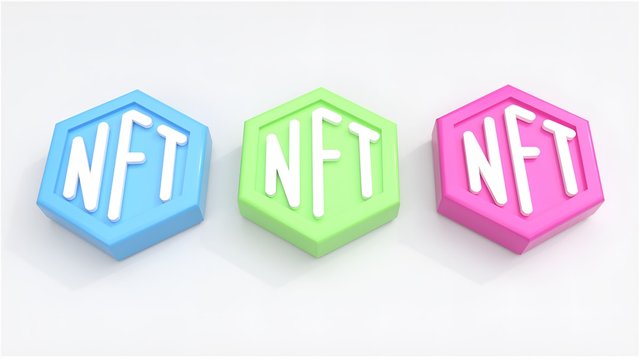
What are Cryptocurrencies?
Cryptocurrency is the latest buzzword among the finance and tech industries. In recent years, Bitcoin, Ethereum, and Non-Fungible Tokens (NFTs) have exploded in popularity.
But what are cryptocurrency, Bitcoin, Ethereum and NFTs, and what makes them so attractive? In this article, we're going to take a deep dive into the benefits of these revolutionary digital assets.
We'll explore what each technology is, and explain why they have become so popular. We'll look at the benefits of Bitcoin, Ethereum, and NFTs, so you can make an informed decision when investing in cryptocurrency.
So let's get started!
bitcoin

Bitcoin is a decentralized digital currency that is used as a medium of exchange between two parties without the need of a governing body or middleman. The term “Bitcoin” is often used to refer to the entire cryptocurrency industry as a whole.
Bitcoin has several advantages over other forms of payment, such as faster transaction speed and lower fees. The system is also more secure than alternatives, as it is impossible to reverse a transaction once it has been made. This makes the system ideal for many online transactions.
The primary benefit of using Bitcoin is its security. The system is almost completely unhackable, as it is verified and protected by a network of computers. It is also decentralized, meaning that no one person or organization can control it. This makes it difficult for anyone to manipulate or steal funds.
Another advantage of Bitcoin is its transparency. All transactions are public and accessible by anyone. This feature allows for increased traceability, which can be used to combat fraud and financial crimes.
The most well-known application of Bitcoin is its use in buying and selling goods and services. Many sellers have begun to accept Bitcoin payments, and it is increasingly likely that more and more retailers will start to accept the currency in the coming years.
Bitcoin has also become popular in online gaming, as it is more secure than using credit cards or other forms of payment. This makes it a great option for gamers looking to purchase in-game items without worrying about their funds being stolen.
Beyond its uses in buying and selling goods and services, Bitcoin offers a multitude of advantages to individuals and businesses. It can be used to transfer funds quickly and cheaply, making it easier and more cost-effective to send money abroad. For those looking to invest, there is the potential to make large profits with Bitcoin. The currency is incredibly volatile, and traders can use this to their advantage by making bets on the future value of the currency.
What is Bitcoin?
Bitcoin is a decentralized, digital currency that can be used as an alternative to traditional currency. It is powered by blockchain technology, which is a shared database that records transactions and allows users to track their Bitcoin transactions. Bitcoin is seen as a store of value, a medium of exchange, and a unit of account. It is also the most widely-used and accepted cryptocurrency, with many businesses beginning to accept it as a form of payment. Bitcoin is highly secure, as the data stored in the blockchain is not centrally stored, meaning it is not vulnerable to hacking. The price of Bitcoin is volatile, and the cryptocurrency can be bought, sold and exchanged on cryptocurrency exchanges such as Coinbase and Kraken. Ethereum, another popular cryptocurrency, is similar to Bitcoin but provides additional functionality such as the ability to create smart contracts and non-fungible tokens (NFTs).
Benefits of Bitcoin
Bitcoin is the world's first successful cryptocurrency, released in 2009 by the mysterious Satoshi Nakamoto. It is a decentralized digital currency, meaning it is not regulated by a central authority like a bank or government, and it allows users to send payments to each other directly and securely. Bitcoin can be used for a range of transactions and investments, including online purchases, and because of its decentralized nature, it is secure from inflationary manipulation and censorship. Users can also store their Bitcoin securely in a digital wallet, with no fear of fraud or theft. Bitcoin is also responsible for the emergence of Ethereum and NFTs, as it was the very first blockchain-based cryptocurrency. Ethereum and NFTs have built upon the technology of Bitcoin and have created even greater opportunities for investors and users.
Ethereum

Ethereum is an open source, blockchain-based platform that is similar to Bitcoin in many ways. Unlike Bitcoin, Ethereum is designed to enable developers to create and deploy decentralized applications (dapps). Ethereum was first proposed in 2013 by Vitalik Buterin and was officially launched in July 2015.
Ethereum offers a number of advantages to users. Unlike Bitcoin, Ethereum is Turing-complete, meaning that it can be used to write code and deploy smart contracts, or contracts that can automatically execute without any manual interference. Ethereum also has a built-in programming language called Solidity, which simplifies the development of complex applications. Additionally, Ethereum has a built-in transaction fee, called ‘gas’, which helps to incentivize miners who process transactions on the network.
The Ethereum network is also much faster at processing transactions than Bitcoin, with a much lower transaction fee. This makes it more suitable for applications that need to process a large number of transactions quickly.
Non-Fungible Tokens (NFTs) can also be built on the Ethereum network. NFTs are unique digital tokens that are used to represent a variety of digital assets, including gaming items, artwork, and real estate. NFTs are not interchangeable, meaning that each one is unique and can be bought and sold on the Ethereum network.
In conclusion, Ethereum offers a wide range of advantages over Bitcoin, including its ability to process transactions quickly and efficiently, its support for smart contracts and NFTs, and its ease of development using the built-in language, Solidity. Ethereum is a powerful and versatile platform that is quickly becoming a standard for blockchain-based applications.
What is Ethereum?
Ethereum is an open-source, decentralized platform for running distributed applications and smart contracts. It has similarities to Bitcoin in that it is a digital currency, but Ethereum is more than just a cryptocurrency. Unlike Bitcoin, Ethereum’s primary purpose is to run applications on its blockchain network. Applications built on the Ethereum protocol are called decentralized applications or dapps, and use the Ethereum Virtual Machine (EVM) to support their operations. The EVM serves as a decentralized environment for running code that can’t be altered or tampered with, making it a secure and efficient platform for developers. Ethereum offers an attractive platform for developers to create and monetize their applications, and has the potential to revolutionize how we interact with the digital world. With Ethereum, developers can create unique Non-Fungible Tokens (NFTs) that can represent digital assets such as artwork and collectibles. NFTs allow users to purchase and own digital assets on blockchain networks, enabling creators to better capitalize on their work.
Benefits of Ethereum
Ethereum, like Bitcoin, is a decentralized blockchain-based cryptocurrency. As with Bitcoin, Ethereum allows users to store, transfer, and exchange digital currency. However, what sets Ethereum apart is its smart contract capability. Ethereum enables users to create and execute smart contracts, which are digital agreements enforced without the need for a middleman. This makes transactions faster, cheaper, and more secure. Ethereum also has more features than Bitcoin, including the ability to build and deploy decentralized applications (DApps).
Ethereum's blockchain-based platform allows users to create and manage non-fungible tokens (NFTs). NFTs can be used for a variety of applications, such as the ownership of unique assets like digital art, collectibles, and even real estate. This provides users with increased security and ownership, as each token is secured by Ethereum's blockchain technology. As a result, Ethereum has become incredibly popular amongst investors, developers, and cryptocurrency users alike.
Non-Fungible Tokens (NFTs)

Non-Fungible Tokens (NFTs) are a new technology that has recently gained traction and is rapidly becoming the most talked-about innovation in the blockchain space. Initially developed to represent unique digital assets, NFTs are becoming increasingly popular as a means of verifying ownership of digital items.
NFTs are built on the Ethereum blockchain, and can represent a wide range of digital items, from artwork, music, and video, to virtual real estate, digital collectibles, and even merchant loyalty programs. Each NFT contains a unique identifier that verifies the ownership of the digital asset, which can be easily tracked and transferred between users.
NFTs have several use cases, ranging from digital art auctions and game assets, to peer-to-peer marketplaces and digital gaming. They can also be used to store important documents and files, or to manage intellectual property rights. In addition, NFTs are becoming increasingly popular in the traditional art world, with artists using them to securely store and share their work.
The key benefit of NFTs is that they enable users to prove ownership of unique digital assets. This has made them popular among investors and collectors, who are attracted to the idea of securely owning and trading digital art, or even collecting unique digital gaming assets. Additionally, NFTs also provide a way to create secure digital marketplaces and peer-to-peer networks. With the rise of blockchain technology, users can now securely trade digital assets without having to worry about ownership fraud or trust issues.
In conclusion, Non-Fungible Tokens (NFTs) offer a secure and reliable way to store, maintain and transfer digital assets, providing a way to verify ownership and create digital marketplaces. This technology has seen tremendous growth in recent years and is now being used by everyone from digital artists to game developers and investors. Whether you’re looking to collect rare digital art, invest in virtual real estate, or create a secure peer-to-peer network, NFTs are quickly becoming the go-to technology for digital asset ownership and transfer.
What are Non-Fungible Tokens?
Benefits of NFTs
Non-Fungible Tokens (NFTs) are decentralized and digital tokens with unique properties based on blockchain technology. By utilizing the Ethereum and Bitcoin blockchains, NFTs can be used to represent virtual objects, collectibles and digital assets. As such, they offer a number of benefits and advantages that these other types of digital assets do not.
NFTs have an inherent and immutable scarcity, meaning they are unable to be counterfeited or duplicated. This prevents oversupply, inflation, and potential market manipulation. As a result, users can have confidence that their NFTs are unique and rare.
Additionally, NFTs provide users with more autonomy and control over their digital assets. Unlike centralized stores of value like fiat currencies, NFTs are stored on open, distributed ledgers without a centralized authority. This provides users with more control over their assets, enabling them to make decisions about how to store, transfer and interact with them.
Finally, NFTs are being used to enable a more efficient, direct, and secure way of crowdfunding. As more projects and initiatives arise, users are able to use NFTs to raise funds and support the project they believe in. In this sense, NFTs are revolutionizing the way organizations are able to raise funds and generate support.